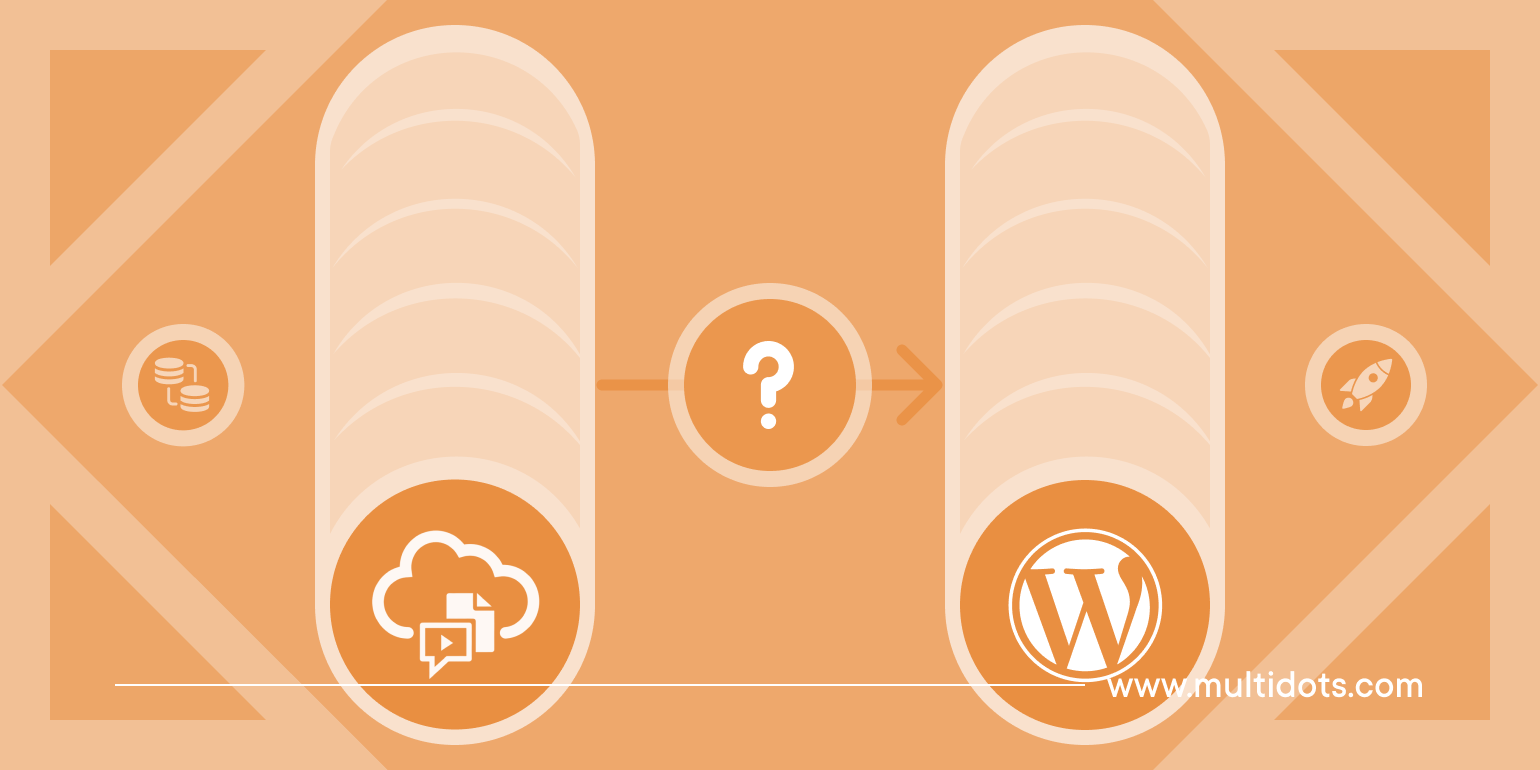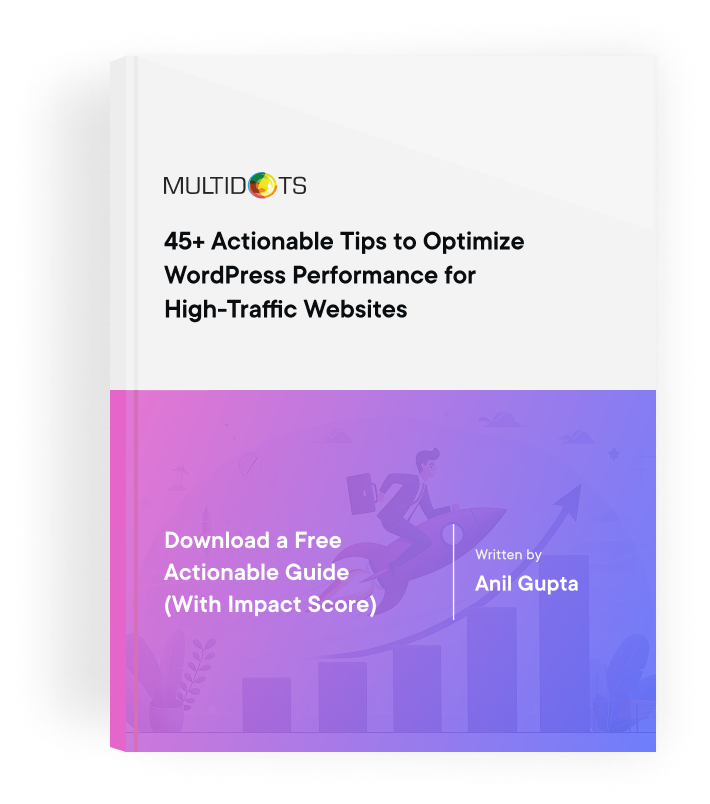Why Migrating from Oracle Content Management to WordPress Is the Smart Move in 2025
Switching to WordPress from Oracle CMS in 2025: A Strategic Guide

Table of Contents
Oracle Content Management (OCM) is a cloud-based content hub that enables omnichannel content management for large-scale enterprise websites. Oracle is a big name in the CMS market, or, at least it was.
As new enterprise-grade CMSs entered the scene, and old ones such as WordPress further developed their capabilities to fit enterprise needs perfectly, Oracle lagged behind. Even so, many enterprises still trust Oracle as a brand and stick to its CMS solution.
Not anymore.
Oracle has announced the end of life for its Oracle Content Management Cloud Services, effective December 31, 2025. This move has left the brands still counting on Oracle to finally start looking for alternative solutions that are more flexible, scalable, and user-friendly.
In this post, you will learn how WordPress emerges as a prime contender due to its ease of use, extensive community support, and robust ecosystem.
Challenges with Oracle Content Management
Without a doubt, the Oracle CMS boasts a good deal of benefits. OCM offers a comprehensive suite of features that cater to extensive enterprise needs, such as a central hub for managing a variety of digital assets across multiple channels and languages, ensuring security and compliance with regulatory standards. Its cloud-native architecture supports scalability.
That being said, while robust and feature-rich, OCM presents several challenges that have increasingly misaligned with the needs of modern enterprises aiming for agility. And as we inch closer to the end-of-service date in 2025, these challenges become more significant, urging businesses to consider more adaptable CMS solutions.
Here are some of the key challenges with OCM:
- Complex User Interface: Oracle's CMS is known for its complexity, which translates into a steep learning curve for users. Its support documentation isn’t particularly helpful either. This complexity impedes user adoption and productivity, especially for non-technical staff who might struggle with basic content management tasks without IT support.
- Lack of Flexibility: Another critical drawback of Oracle Content Management is its rigidity in terms of customization and integration. As businesses evolve, they frequently encounter the need to customize their CMS to fit new operational requirements or to integrate with new technologies. Oracle's platform, being relatively closed and inflexible, can hinder these adaptations and lead to vendor lock-in.
- High Cost of Ownership: Operating Oracle Content Management involves substantial investment in licensing fees and also in terms of maintenance. For many businesses, these costs can be prohibitively high, especially when compared to more cost-effective alternatives like WordPress that offer similar or enhanced functionalities.
All this coupled with the announced end of service, means a lack of updates, security patches, and technical support. This poses risks for businesses in terms of security vulnerabilities and compliance issues, making the system unsuitable for further use.
Benefits of Migrating to WordPress
Moving from OCM to WordPress offers several compelling advantages that directly translate into better business agility and operational efficiency. Here’s why WordPress stands out as a smart choice as an enterprise CMS platform.
1. User-Friendly Interface
WordPress is renowned for its simplicity and ease of use. It is an ideal choice for content creators and marketers who require a platform that allows them to manage and update their websites without extensive technical know-how. This user-friendly nature minimizes training time and enhances productivity across the organization.
2. Extensive Community and Plugin Ecosystem
WordPress boasts one of the largest open-source communities in the world, providing a wealth of resources, forums, and third-party plugins. This ecosystem ensures that businesses can easily find solutions or assistance for enhancing their website's functionality. Whether it's SEO tools, security enhancements, or custom content displays, there's likely a plugin available to meet every need.
3. Cost-Effectiveness
Unlike Oracle’s CMS, WordPress offers a more affordable solution with no licensing fees. The open-source nature of WordPress means that businesses can reduce their overall expenditure on web development and maintenance. Additionally, the vast array of free and premium plugins and integrations allows businesses to expand their capabilities without additional investments.
4. Scalability and Flexibility
WordPress is highly scalable, which means it can grow with your business. From small blogs to large multinational corporate websites, WordPress can adapt to growing traffic and content without sacrificing performance. Its flexibility also allows for extensive customization to tailor the site to specific business needs or customer demands.
5. SEO-Friendly
WordPress is designed with best practices for search engine optimization (SEO) in mind. It offers clean code, optimized image handling, and SEO-friendly permalink structures that help improve your site’s visibility in search engine results. With plugins like Yoast SEO, businesses can further refine their SEO strategy to achieve the best possible rankings.
6. Robust Security
While any platform is vulnerable to security threats, WordPress continuously updates its software to patch vulnerabilities and protect its users. The large number of security plugins available also helps safeguard your site from potential attacks, ensuring your content and user data are protected.
7. Easier Transition with Prevalent Support
Migrating to WordPress is supported by numerous tools and professional services that make the transition smoother and less prone to errors. With comprehensive migration guides and support services, businesses can ensure that their data is transferred securely and their system integrity is maintained.
Long story short, migrating to WordPress not only addresses the challenges posed by Oracle Content Management’s end-of-life but also offers a more dynamic, cost-effective, and user-centric platform.
Technical Considerations for Migration
Migrating from OCM to WordPress requires a strategic approach that ensures data integrity and minimal disruption to your operations. Let’s take a look at the key steps involved in this transition.
1. Data Mapping and Migration
Before transferring content, it’s essential to map out how data stored in Oracle will translate into the WordPress environment. This involves identifying equivalents for content types, user roles, and metadata. Tools and plugins designed for CMS migration can automate much of this process, ensuring that no data is lost or incorrectly formatted during the transfer.
2. Maintaining SEO Integrity
To preserve search engine rankings, it’s vital to implement proper redirects from old URLs to new ones on WordPress. This requires setting up 301 redirects for each page, which tells search engines that the page has permanently moved to a new URL, thereby transferring the SEO value to the new URL.
3. Custom Functionality and Plugin Replacement
Oracle Content Management might have custom functionalities developed specifically for your business needs. In WordPress, similar functionalities may need to be recreated using available plugins or custom development. It’s important to identify which Oracle features are essential and find WordPress plugins or develop new features that replicate this functionality.
4. Security Measures
Transitioning to a new CMS requires a reassessment of your security strategy to protect against vulnerabilities that could be exploited during and after the migration. This includes configuring WordPress security plugins, setting up firewalls, and ensuring all data transmissions during the migration are encrypted. Regular security audits and updates should become a routine part of the maintenance on your new WordPress site to address new security challenges as they arise.
5. Testing and Validation
Once the content has been migrated, thorough testing in a staging environment is essential. This includes checking that all content displays correctly, all links are functional, and the site performs optimally across different devices and browsers. Testing also helps ensure that all security features are properly configured and working as expected.
6. Training and Support
Post-migration, providing adequate training to your team on how to use WordPress is crucial. This involves familiarizing them with the WordPress dashboard, editor, and other key features. Additionally, ongoing support should be planned to address any issues that arise after the migration.
These technical considerations form the backbone of a successful migration strategy from Oracle Content Management to WordPress, ensuring that the transition preserves your existing assets and SEO rankings and also enhances your site’s functionality and user experience.
Wrapping Up
As we approach 2025, the urgency for a seamless migration to a more dynamic and scalable platform becomes increasingly apparent.
WordPress, renowned for its user-friendly interface and vast ecosystem, offers a compelling case for businesses planning to transition from Oracle enterprise content management. It offers numerous advantages including ease of use, extensive support through its vast community, scalability, enhanced SEO capabilities, and strong security measures.
So, are you ready to migrate your CMS to WordPress with zero downtime and minimal disruption? Contact Multidots today to discuss your enterprise migration needs and learn how our expertise in all things WordPress will ensure a seamless move away from OCM.
FAQs
-
Migrating from Oracle Content Management to WordPress is advisable due to several compelling reasons: WordPress’s user-friendly interface reduces the learning curve and enhances productivity; its extensive plugin ecosystem allows for robust customization and functionality enhancements; and it’s generally more cost-effective due to its open-source nature which eliminates licensing fees. Additionally, WordPress offers better scalability options to accommodate growth and improve SEO potential, making it an ideal choice for enterprises looking to expand their digital presence.
-
Deciding to migrate depends on your specific business needs and goals. If you’re facing issues with Oracle’s complexity, high operational costs, or inflexibility, WordPress provides a more user-friendly, cost-effective, and flexible alternative. It’s particularly suitable for organizations looking for a platform that supports rapid scaling, easy content management, and a strong community for ongoing support. Assess your current and future needs to determine if a migration aligns with your strategic objectives.
-
Key benefits of using WordPress over Oracle Content Management include:
- Cost Efficiency: WordPress is free to use, with no licensing fees, reducing overall website costs.
- Ease of Use: Known for its simplicity, WordPress allows non-technical users to easily manage and update content.
- Extensive Customizability: With thousands of plugins and themes, WordPress is highly customizable, enabling businesses to tailor their site to their exact needs and preferences.
- Strong Community Support: A vast community of developers and users provides extensive support, resources, and updates, enhancing the platform’s security and functionality.
-
Before migrating, consider the following:
- Data Mapping: Ensure a clear plan for how data will be transferred and mapped to the new WordPress structure.
- SEO Preservation: Plan how to maintain your current SEO standings, including setting up redirects and transferring all meta content.
- Custom Functionalities: Identify any custom functionalities in Oracle and how they will be replicated in WordPress, whether through plugins or custom development.
- Resource Allocation: Assess the resources (budget, time, personnel) required for the migration to ensure minimal disruption to your operations.
Feel free to schedule a quick call with our migration expert.
Contact Us
